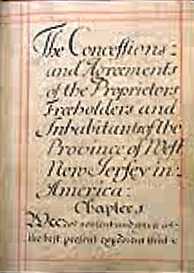Related Topics
Benjamin Franklin
A collection of Benjamin Franklin tidbits that relate Philadelphia's revolutionary prelate to his moving around the city, the colonies, and the world.
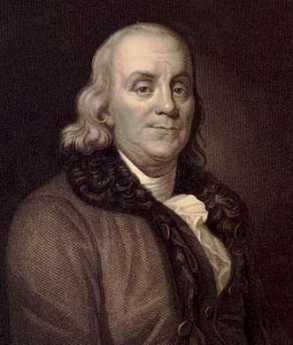
Quakers: All Alike, All Different
Quaker doctrines emerge from the stories they tell about each other.
..The Constitution
Our Constitution was not a proclamation written by a convention. It was a negotiated contract for uniting thirteen sovereign independent states. Nothing like that had ever been done voluntarily, and few nations have matched it in two hundred years, even with the use of force.
Right Angle Club 2012
This ends the ninetieth year for the club operating under the name of the Right Angle Club of Philadelphia. Before that, and for an unknown period, it was known as the Philadelphia Chapter of the Exchange Club.
Robert H.Bork Upsets A Century of Antitrust Law
According to the late Robert H. Bork, it ought to be fairly easy to identify price-fixing, because legitimate cases that harm the consumer by price manipulation aren't common, or may not even exist. With this, Bork convinced the judiciary to abandon a century of contrary belief while still a young law professor, thus establishing his own reputation with Ronald Reagan. He was appointed Solicitor General by Richard Nixon, unfortunately thus embroiling himself in Nixon's impeachment.
Advantages and Disadvantages of Being a Small Country
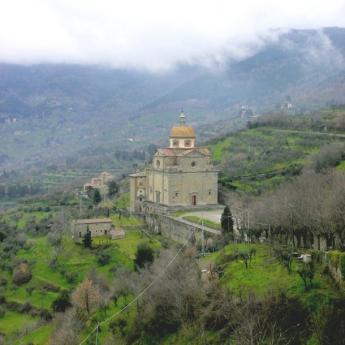
|
| very pleasant |
LIVING in a small country seems to be very pleasant, and many people prefer it to the hustle, bustle and high taxes of living in a large country. Unfortunately, big neighbors are tempted to conquer and enslave you. Aside from this one disadvantage, many people would prefer a simple, quiet life among blood relatives, all tending to think the same way. It's one step above tribalism, and maybe it's a form of peaceful tribalism.

|
| Measles |
But our evolutionary ancestors didn't think they could afford this luxury. They lived in a strange wilderness filled with fierce aborigines who often took a notion to scalp you, even if you were willing to become a hunter-gatherer like them, because they scalped other hunter-gatherers, too. And they were good at making war. Later historians sometimes contend that European settlers only gained a foothold in the New World because the Indians had been weakened by smallpox, measles, and other contagions which advanced ahead of the exploring Europeans. English settlers along the Atlantic coast were able to overcome the Dutch and Swedes who preceded them, but the French in Quebec and the Spanish in Florida were a greater threat. Worst of all enemies were the rulers of England, who seemed to think it was natural to enjoy the benefits of the New World without the nuisance of living there. A century or more of conflict from the enemies who surrounded them had pretty well convinced the English Atlantic settlers that they simply had to get bigger and stronger. Otherwise, one of the many enemies surrounding them would eventually succeed in what seemed to be a universal goal: conquest.
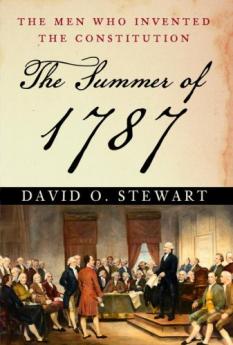
|
| The summer of 1787 |
The colonists had learned one other thing. Their own loose federation of small peaceful states was in some ways worse than rule by an outside King. The Confederation had been constantly reluctant to surrender local power to a unified defense; almost by definition, an invader was better disciplined than the defenders of a loose tribal alliance. The defense alliance had few advantages for keeping local bickering under control and was definitely less effective with families and children to protect against a mobile force of adult male warriors. The Confederation barely held together during an eight-year war against a common enemy, and it was rapidly coming apart after peace was declared in 1783. The English and French could see all this, too. Once they settled their own war with each other, each of them planned to envelop the former colonies. So George Washington and James Madison gathered the Best and the Brightest together in Philadelphia in the summer of 1787, intending to construct a practical plan for what almost all the colonists wanted: a Union. A Union strong and big enough so other nations would leave them alone. A Union was benign enough so its citizens would enjoy the same Liberty they had as a loose alliance. Divided informally into four interest groups, each of the four needed concessions to be made. But each also needed to leave the other three feelings they had gained something important as the price of surrendering to what some other group could not do without. Having found the vital concessions, it was then still necessary to tinker and re-balance, so that everyone could still "live with it". In essence: 1) The South had to be given time and forbearance to work out its difficult problem of slavery, moral qualms notwithstanding. 2) The nine small states had to be protected against perpetual domination by the three big ones, of Virginia, Pennsylvania, and Massachusetts. 3) If America was to realize the full advantage of growing from thirteen states to fifty, existing old states must not take advantage of new ones. 4) Political revolution was not the end of it; there was also the Industrial Revolution. Fishing, lumbering, farming, trade, and cotton, would in some way need to accommodate banking and manufacturing, assisting rather than upsetting other compromises. Given these tangled issues, it would be a long, hot summer in Philadelphia.
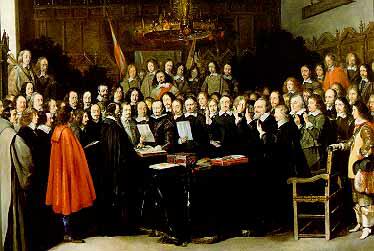
|
| Treaty of Westphalia in 1648 |
Three of the four main problems were obvious, demanding to be addressed. Slavery was obvious from the start; you either solved this problem or the South would walk out. The western wilderness was bigger than existing America; it too could not be ignored. And finally, huge variations of climate and resources led to local specialization; a marvelous thing, if you could trust your suppliers and customers to cooperate. But curiously, none of these issues got directly to the political problem the Constitutional Convention was meant to solve, which was unifying thirteen different sovereignties, each of which was prepared to get up and walk out. The modern nation state was created by the Treaty of Westphalia in 1648; its guiding principle was mutual respect for local sovereignty. Having pacified over a hundred contentious central European states, it required a great deal of self-assurance for anyone to flout it. It seemed hard to imagine any way to remain sovereign, without commanding a vote equal to that of other sovereignties. The delegates from the State of Delaware, which had separated from Pennsylvania within the past decade, were "prohibited [by their legislature] from changing the Article in Confederation establishing an equality of votes among the States". Just what agitated the minds of the Legislature of Rhode Island was kept private, but something about a Union bothered them so much they refused to send delegates to Philadelphia even to discuss Union. After they assembled and started having dinner together at taverns, and later as they were beginning to vote in coalitions, one thing began to emerge. The small states banded together, hung out together, talked alike, and began to vote alike. Their emerging leader was John Dickinson of Delaware, the author of the Articles of Confederation, and very likely one of the prime agitators in the lower three counties of Pennsylvania -- breaking off from Pennsylvania and becoming the State of Delaware. Furthermore, Dickinson had been Governor of both Delaware and Pennsylvania, so he was very familiar with the deplorable behavior of the Legislature of Pennsylvania, now and for decades in the past. It took a long time for this sly old political operator to show his cards, but when he did, he gave James Madison the shock of his life. Madison, the near neighbor of George Washington and leader of the Virginia delegation, the author of the Virginia Plan, and the clear authority on the politics of government in America was busily consumed with working out the details of the emerging Constitution. Obviously, it went to his head a little, and so he was dumbfounded when Dickinson drew him aside in the corridor to tell him he wasn't going to have a Constitution at all. Dickinson was walking around with the votes in his pocket of five or six of the nine small states and was telling Madison that the small states were fed up, and not going along. Young Madison was suddenly confronted by the most respected lawyer in America, whose timing was perfect. For what may have been the first time in his life, Dickinson fully revealed the depth of his annoyance, that the big states would always take the little ones for granted. That the little ones were always expected to be deferential to the big fellows in charge of the big states. And then the clincher: "I would rather risk conquest from a foreign state than being forever dominated by my larger neighbors." That put it in a nutshell. If the only reason for joining a Union was to be protected from foreigners, Dickinson wasn't so sure he preferred his coalition partners. Evidently, this was the feeling of most of the other small states at the Convention, and it may well be the feeling of all small states, anywhere and everywhere.
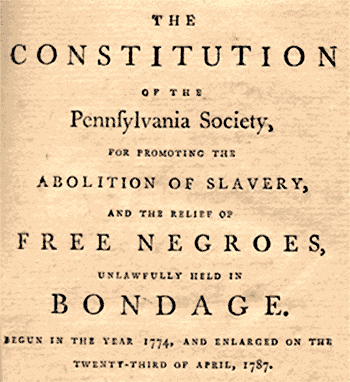
|
| Promoting the Abolition of Slavery |
Once the Convention got the idea, solving it became comparatively easy, but why waste an opportunity? There is a good reason to suppose it was Ben Franklin, silent as a cat watching a mouse, who matched it up with slavery. His fellow Pennsylvania delegate, James Wilson, had prepared the way by starting the discussion of granting 3/5 representation for slaves, but it had received comparatively little notice in the previous few weeks. Franklin rammed it home, adding a sop to the large states by according to the House of Representative sole power to introduce money legislation. Two of the main issues of the convention were solved with one agreement, small-state representation, and slavery. Who can say how long he had been nursing this idea. He had agreed to be president of the Pennsylvania Society for Promoting the Abolition of Slavery, about a month before the Constitutional Convention began. Prior to that, he and his wife had owned a slave or two, for many years. On June 2, the society adopted a resolution to end the slave trade and presented it to Dr. Franklin, asking him to present it to the Convention. He never did, explaining later it was "advisable" to let the matter lie over. In August, Alexander Hamilton blocked a similar resolution from the New York Manumission Society, even though he had been a fervent lifelong opponent of slavery.
Originally published: Monday, July 23, 2012; most-recently modified: Friday, September 20, 2019
